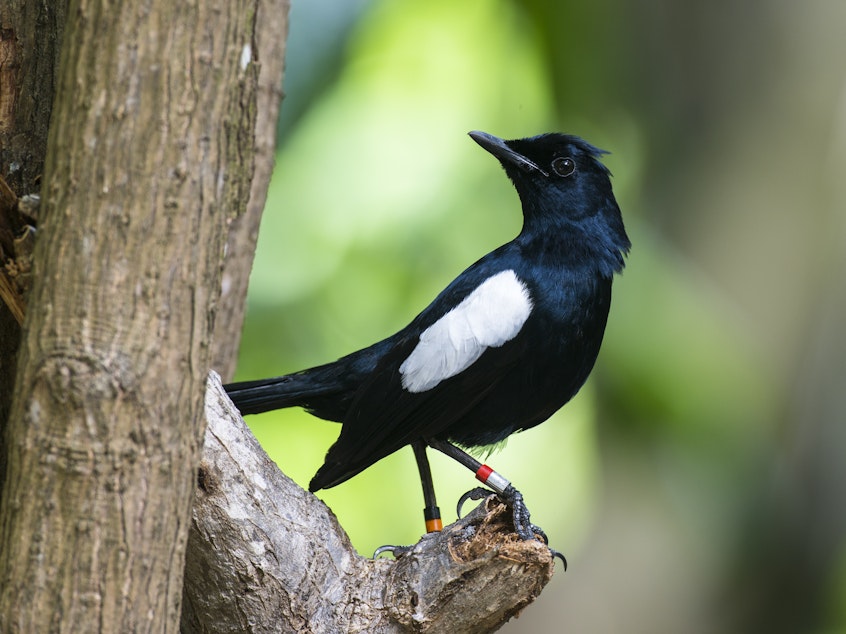Opinion: One Million Species Are At Risk Of Disappearing. Humans Should Act Now

The Seychelles Magpie Robin is about nine inches long, with inky blue-black feathers, and white patches along its wings. There may be only 200 or so of these beguiling birds in the world, all in forests of the Seychelles Islands in the Indian Ocean, off the coast of East Africa.
It is alarming to think of just a few birds left of a single species, isolated and fragile. A sudden storm, or a rampant sickness, sounds like it might extinguish them.
Few of us outside the Seychelles are likely to ever see the plumage or hear the song of a Seychelles Magpie Robin in person. But I noticed their name this week when the summary of a United Nations report was issued that warning — and surely it is a warning — that a million animal and plant species could be wiped out over the next few years.
As the earth warms, and as human beings spread out, birds, bugs and animals lose much of the grasses, plants, insects and other animals that they need to survive. When a species dies out, we all lose something.
Experts who search for ways to put across the importance of biodiversity often explain how humble creatures we might not see as vital in our lives are actually crucial. Honeybees are global pollinators, who carry the seeds of crops and plants that feed us. Ants and earthworms aerate soil, and bring oxygen to what grows. Frogs feast on insects that could ravage plants. Humble creatures do huge things.
Sir Robert Watson, chair of the Intergovernmental Science-Policy Platform on Biodiversity and Ecosystem Services, which conducted the assessment, cautions, "We are eroding the very foundations of economies, livelihoods, food security, health and quality of life worldwide."
Scientists say the very friendliness of the Seychelles Magpie Robin made them vulnerable. The birds are open to outsiders. When human beings began to settle in the Seychelles in the 1770s, the Magpie Robins weren't prepared, by instinct or experience, to evade what came along with human beings. They were killed for food by dogs and rats, and for sport by men. At one point, the number of those blue-black birds dwindled to reportedly below 15.
The Seychelles Magpie Robin brings grace and song into the world. You shouldn't have to think they, or any other of the one million species now at risk of disappearing, provide some vital service to humanity, like pollinating crops, or gobbling predators, to feel we have a human responsibility to protect them from extinction.
They are. That should be enough. [Copyright 2019 NPR]



